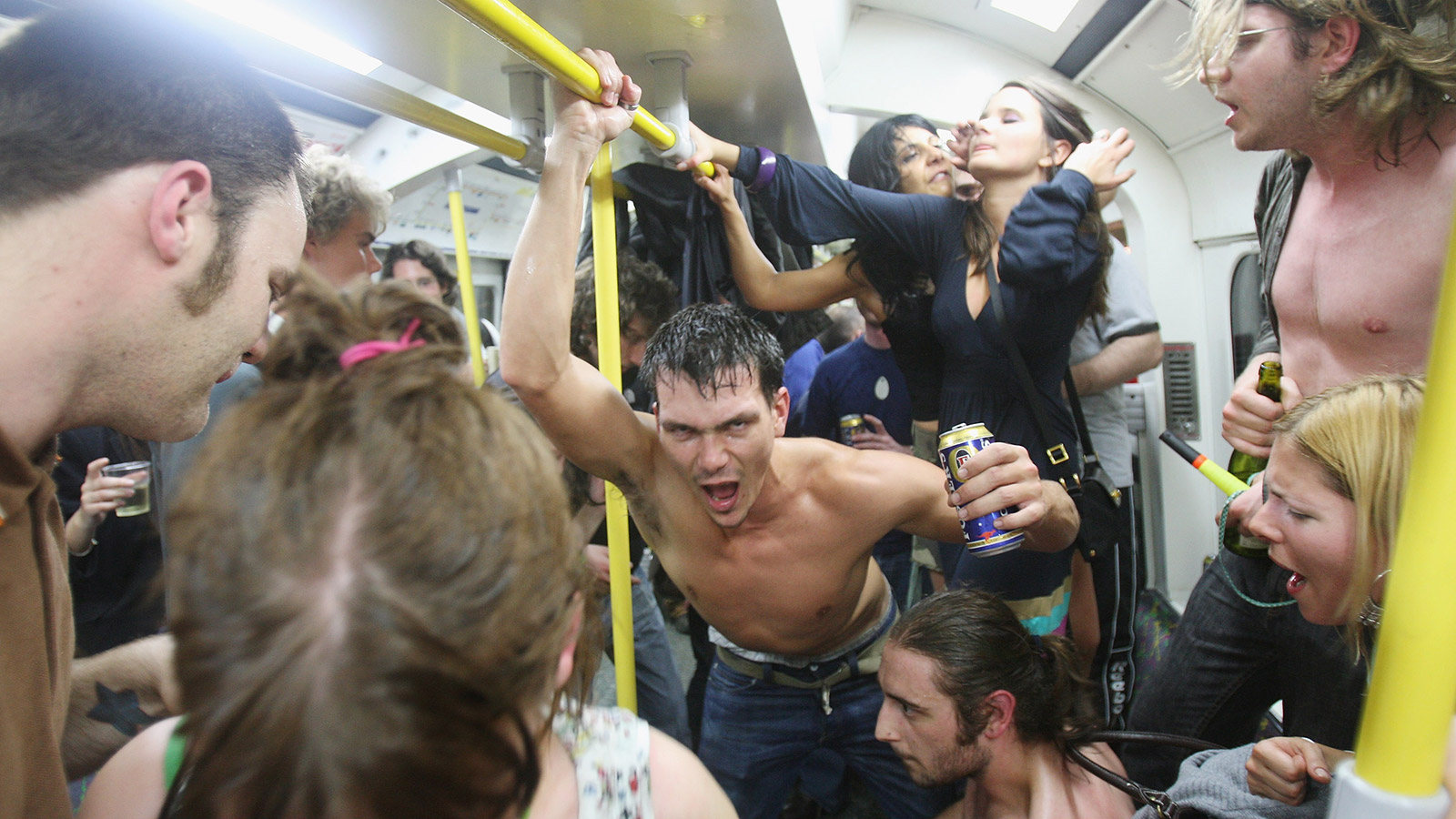Last call for bad behaviour
Why the price of a pint may be the real reason behind Britain’s sharp decline in violent crime
London, May 2012 – Youth at the Ten Bells Pub, the place where Jack the Ripper used to go
Share
From world wars to pub brawls, the British have a long and time-honoured history of violence. As a nation they rarely shy away from a good bust-up, all the better if it takes place at night, on the street, after a pint or six. But new numbers suggest this nation’s legendary pugilistic nature—as well as the anti-social behaviour that precludes it—seems to be rapidly diminishing. The annual Crime Survey of England and Wales, believed to be the most authoritative survey of its kind, has found a significant 22 per cent drop in violent crime in England and Wales since last year. In addition, car and household thefts were down by 10 per cent and 15 per cent respectively; the murder rate also fell slightly, putting it at nearly 50 per cent lower than its highest rate in 2001-02.
How to explain this positive social change? There are several competing theories, the most seemingly outlandish of which is the switch from regular to unleaded fuel in the 1970s. (Lead, ingested in large quantities even gradually over time, is believed to cause aggression in humans.) The thesis is bolstered by the fact that over the past 20 years homicide rates have also dropped by roughly 50 per cent in many ideologically and politically diverse countries just as the first generation to grow up in lead-free environments reached adulthood.
In the U.K., however, the precipitous fall in levels of violence may be due to something less exotic. In order to understand the trend it’s important to look at the changing behaviour of British youth—in particular that subculture’s evolving relationship with drugs and alcohol.
The 2013 crime report found that British teens were drinking and using drugs at much lower rates than in previous years. Rates of school truancy also fell, as did the number of teenage pregnancies. At the time, social scientists speculated it might be due to the social sanitizing effect of so-called “helicopter parenting” as well as the Internet, which kept kids cooped up indoors online instead of out on the street. Others pointed to the success of public health campaigns, such as those by the alcohol education group Drinkaware. Some even speculated the shift was due to the coming of age of a generation of British immigrants from non-drinking cultures, such as Pakistan and Bangladesh.
Undoubtedly all these factors played some part, but what is clear, whatever the reason, is that British youth are buying and consuming less alcohol. A third of British nightclubs have closed down in the past five years and local pubs are following suit. The reason for this is likely simple economics. In recent years the price of alcohol has risen as youth employment and income levels fell or remained stagnant. Binge drinking, once a behaviour synonymous with British youth, has fallen steadily overall for the past 10 years. When you combine these economic factors with an increased public awareness and intolerance for bullying and casual violence, you begin to see a clear reason for the shift.
As the BBC’s home affairs editor Mark Easton told Radio 4 recently, for the first time ever in modern Britain, “It is cool to be cool.” What we are witnessing, he explained, is “a cultural shift away from violence and aggression that is building upon itself.”
While drink-related violence and injuries (as reported by recent hospital-intake statistics across the country) are falling, the question of whether or not statutory minimum alcohol pricing is a useful deterrent for binge drinking remains controversial. Two years ago, Prime Minister David Cameron announced he was bringing in the measure, but then last summer changed his mind (presumably under duress from the powerful alcohol suppliers’ lobby) and the government moved to ban “deep discounting” of alcohol instead. This prevents booze from being sold at sale prices cheaper than soft drinks or bottled water. In Scotland, campaigners for minimum pricing have become frustrated that their proposed statutory legislation has been held up in the courts by a legal challenge by the Scotch Whisky Association.
Not everyone agrees making alcohol even less affordable is the best way to ensure the current trend is not reversed. In fact, it might just as easily be the result of less legislation surrounding Britain’s drinking culture, as opposed to more. In the early 2000s, Tony Blair was heavily criticized for relaxing the country’s strict licensing laws (which caused most bars and pubs to shut down at 11 p.m.) in the hope of facilitating a more relaxed, southern European style of drinking culture.
Over a decade later, it seems Blair’s vision of a calmer British nightlife full of young people sipping wine in cafés instead of staggering through the streets with tallboys of cider has finally come to pass. Cheers to that.
